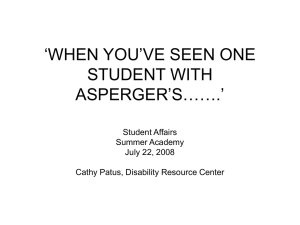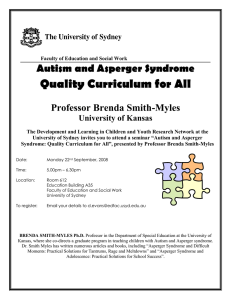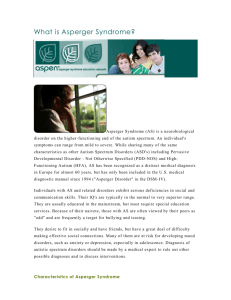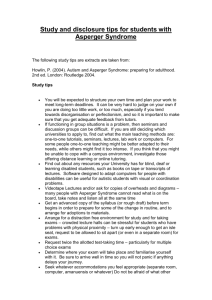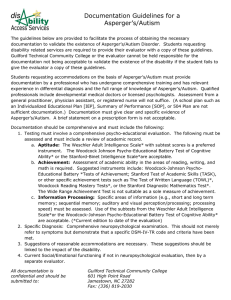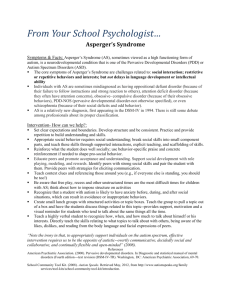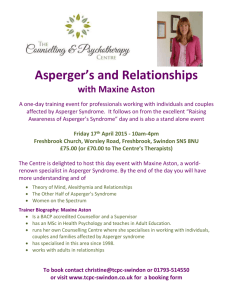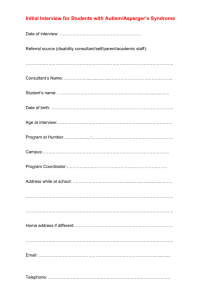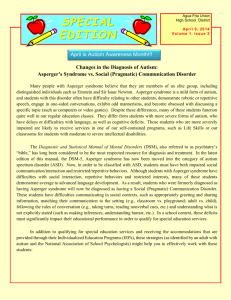Why a Dash Of Autism May Be Key To Success
advertisement
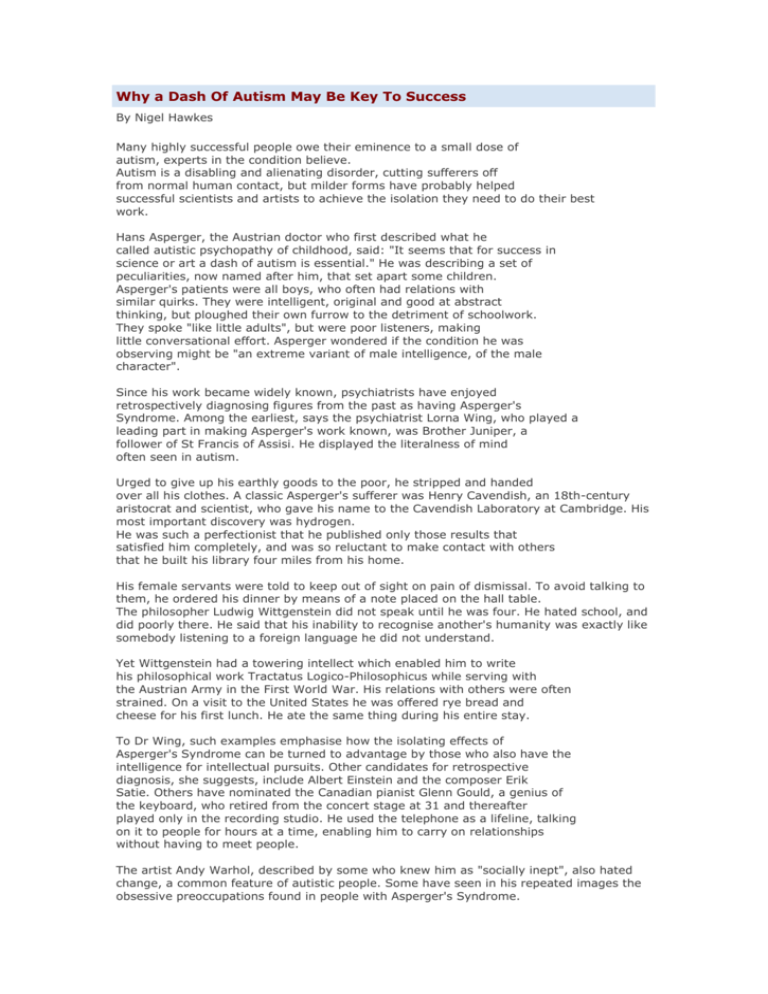
Why a Dash Of Autism May Be Key To Success By Nigel Hawkes Many highly successful people owe their eminence to a small dose of autism, experts in the condition believe. Autism is a disabling and alienating disorder, cutting sufferers off from normal human contact, but milder forms have probably helped successful scientists and artists to achieve the isolation they need to do their best work. Hans Asperger, the Austrian doctor who first described what he called autistic psychopathy of childhood, said: "It seems that for success in science or art a dash of autism is essential." He was describing a set of peculiarities, now named after him, that set apart some children. Asperger's patients were all boys, who often had relations with similar quirks. They were intelligent, original and good at abstract thinking, but ploughed their own furrow to the detriment of schoolwork. They spoke "like little adults", but were poor listeners, making little conversational effort. Asperger wondered if the condition he was observing might be "an extreme variant of male intelligence, of the male character". Since his work became widely known, psychiatrists have enjoyed retrospectively diagnosing figures from the past as having Asperger's Syndrome. Among the earliest, says the psychiatrist Lorna Wing, who played a leading part in making Asperger's work known, was Brother Juniper, a follower of St Francis of Assisi. He displayed the literalness of mind often seen in autism. Urged to give up his earthly goods to the poor, he stripped and handed over all his clothes. A classic Asperger's sufferer was Henry Cavendish, an 18th-century aristocrat and scientist, who gave his name to the Cavendish Laboratory at Cambridge. His most important discovery was hydrogen. He was such a perfectionist that he published only those results that satisfied him completely, and was so reluctant to make contact with others that he built his library four miles from his home. His female servants were told to keep out of sight on pain of dismissal. To avoid talking to them, he ordered his dinner by means of a note placed on the hall table. The philosopher Ludwig Wittgenstein did not speak until he was four. He hated school, and did poorly there. He said that his inability to recognise another's humanity was exactly like somebody listening to a foreign language he did not understand. Yet Wittgenstein had a towering intellect which enabled him to write his philosophical work Tractatus Logico-Philosophicus while serving with the Austrian Army in the First World War. His relations with others were often strained. On a visit to the United States he was offered rye bread and cheese for his first lunch. He ate the same thing during his entire stay. To Dr Wing, such examples emphasise how the isolating effects of Asperger's Syndrome can be turned to advantage by those who also have the intelligence for intellectual pursuits. Other candidates for retrospective diagnosis, she suggests, include Albert Einstein and the composer Erik Satie. Others have nominated the Canadian pianist Glenn Gould, a genius of the keyboard, who retired from the concert stage at 31 and thereafter played only in the recording studio. He used the telephone as a lifeline, talking on it to people for hours at a time, enabling him to carry on relationships without having to meet people. The artist Andy Warhol, described by some who knew him as "socially inept", also hated change, a common feature of autistic people. Some have seen in his repeated images the obsessive preoccupations found in people with Asperger's Syndrome. Copyright 2001 Times Newspapers Ltd.
